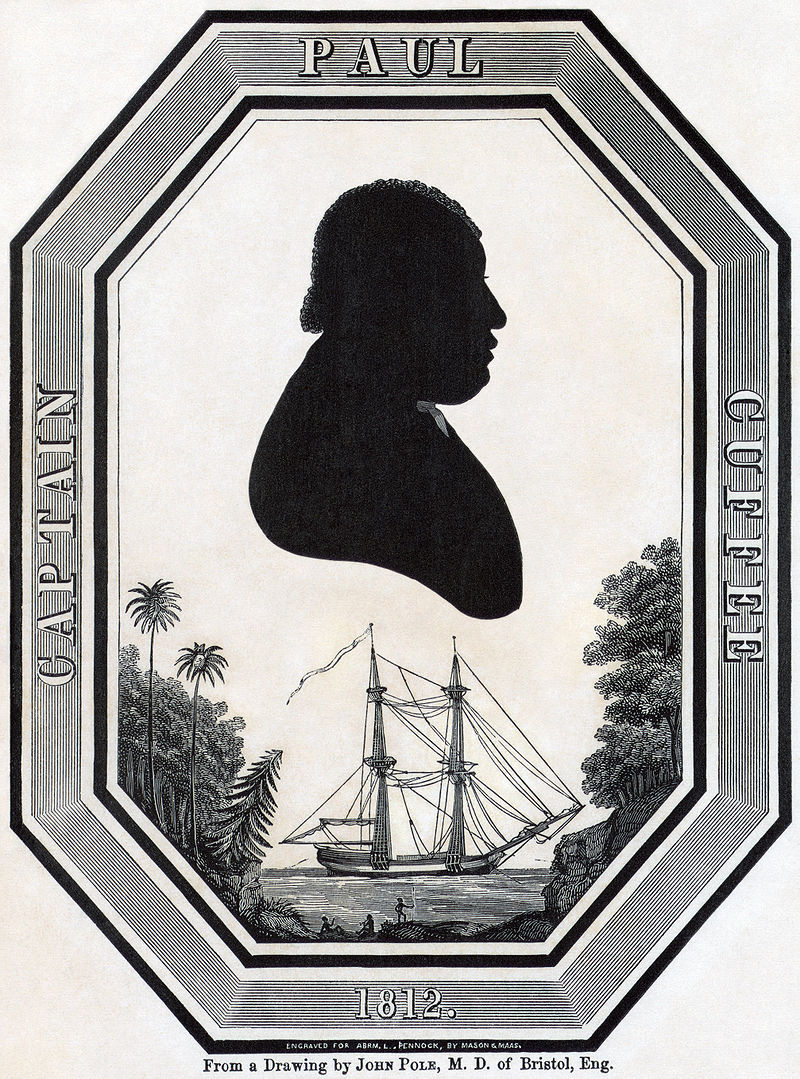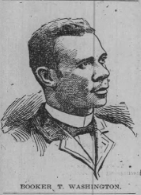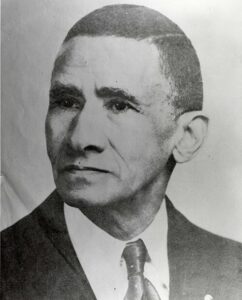Once upon a time in Black Entrepreneur History lived an African American man named Paul Cuffe (Cuffee) who became a highly respected Black business man, owning an American ship with all Black crew, while also becoming a Pan-Africanist who was pro resettling free Black Americans to the continent of Africa.
Born on January 17th of 1759 on Cuttyhunk Island, Massachusetts, Paul Cuffe was the son freed Black man and carpenter Kofi Slocum and Ruth Moses. His birth name was Paul Slocum, but when his father passed away in 1772, Paul decided to take his father’s name Kofi as his surname – thus the name change to Paul Cuffe – with the spelling variation.
He became familiar with ships during the American Revolution, and it was then that he decided to open a shipyard after his marriage to a woman named Alice Pequit who was Native American. He went in on the shipyard with his brother in law. From there, Cuffe built ships, a few nice, huge vessels, him and his all Black crew, and it was with those ships that he sailed back and forth to Europe for cargo.
Paul Cuffe – the Educator of Navigation
Paul Cuffe wasn’t a man to keep all of his business and skills knowledge to himself. He taught others, from his sons and those around him, both on the ship and in his neighborhood. He would teach them the science of navigation, and he did most of this teaching when he ran into troubles from racism at ports. One can deduce from this that he had a futuristic outlook for the generations to come. Despite the problems he encountered, he was willing to fight and endure to make the path easier for African Americans. Along with that, despite the fact that racists targeted him, he also taught white people who were willing to learn the skill of navigation that he perfected as well. At that time, many white people would call it unheard of to learn from a Black man, but for those who were willing to learn from him, he taught.
“Paul Cuffe was mainly instrumental in securing the elective franchise to the colored citizens of Massachusetts.”
The Liberator (Boston, Massachusetts) 18 Sep 1857, Fri Page 4
Captain Paul Cuffe Fights Racism Against His Black Owned Business
According to the abolitionist newspaper The Liberator, Paul Cuffe was “active and persevering”, of stern integrity and was respected by all who knew him. His wealth as a Black man was one to talk about as he amassed about fifty thousand dollars (over 3 million dollars today) to which he used to take ownership of a ship and become its commander. Cuffe’s ship was manned by an all Black crew where the ship would take cargo into Norfolk, Virginia.
There was once during this time of shipment drop that Cuffe ran into problems with a collector who wouldn’t clear Cuffe nor give him his papers while degrading him at the same time due to him being a Black man. [At the time, a Black person needed papers to say who he was legally, his business and the rights he had because Cuffe was free and wealthy during the time of slavery.]
Captain Cuffe then had to go to Washington DC to gather more proof on who he was. It was then that he was introduced to the President at the time – President Madison – and in plain Quaker English, Cuffe spoke with the president who was also a Quaker. He asked for not only the President’s protection but for the President to order the collector to clear him out from Norfolk for to go to New Bedford, Massachusetts.
President Madison delivered to Cuffe and his all Black crew clearance for the New Bedford port, and that was when Cuffe and crew returned and got the respect they were due from a white man who didn’t believe they deserved any kind of respect. This was very different to how President Madison saw Captain Cuffe. He “regarded him as a citizen of the United States” with rights that the United States was to “protect and respect.”, especially since Cuffe made a point to state that Black people pay taxes but didn’t get the proper representation or rights of white citizens which was unconstitutional.
Paul Cuffe – the Pan-Africanist for the Resettlement of Free Black People to Africa
Captain Paul Cuffe was not only a skilled captain of his own ship and well respected businessman, but he also had a strong desire to relocate all free Black people to Africa. He believed this would be better for his people, so he petitioned for it to be done. Of course, this was a great idea to him because of the maltreatment of his fellow Black people who were excluded from the “common advantages of civilized life”.[2] Cuffe promoted the resettlement and solicited aid so that a vessel from the British government be used to transport from America to Sierra Leon, both Black people and native products for their own work and production. One such petition was written to Congress in the year 1813. Eventually, his petition was granted, and along with land in Sierra Leone, Cuffe and about thirty other Black people went along with him in 1815 and landed in 1816. He continued his voyages, petitioning for more help, until he passed away only a year later after his dream of resettlement in Sierra Leone.
Paul Cuffe’s Death
Captain Paul Cuffe passed away on September 9, 1817 in Westport, Bristol County, Massachusetts and was buried in Friends-Central Cemetery in the same place of his birth, leaving behind his spouse Alice Cuffe and children.
He was a business man in charge of not only his vessels, but a grist mill which grinds grains and an entire farm along with a memoir titled Memoir of Captain Paul Cuffee, becoming an author before he left the earth.
Sources
- The Liberator (Boston, Massachusetts) 18 Sep 1857, Fri Page 4
- The Pennsylvania Gazette (Philadelphia, Pennsylvania) 19 Jan 1814, Wed Page 1





More Related Stories
Isaac Scott Hathaway – Founder of Isaac Hathaway Art Company & Designer of First African American Coin
James Wormley – Founder of the Most Expensive Hotel in Washington D.C. in 1800s – the Wormley Hotel
William E. Matthews – Wealthy Financial Broker & Civil Rights Leader of 1800s